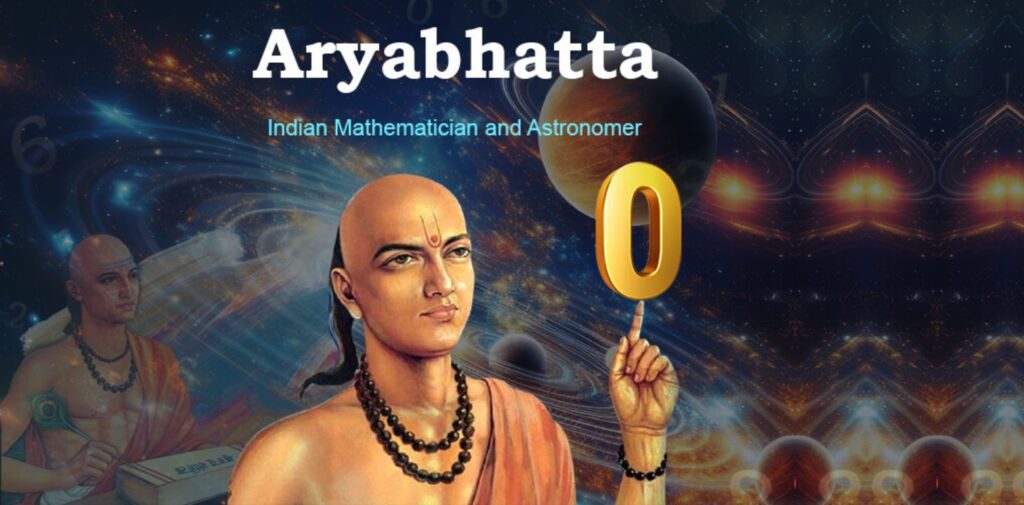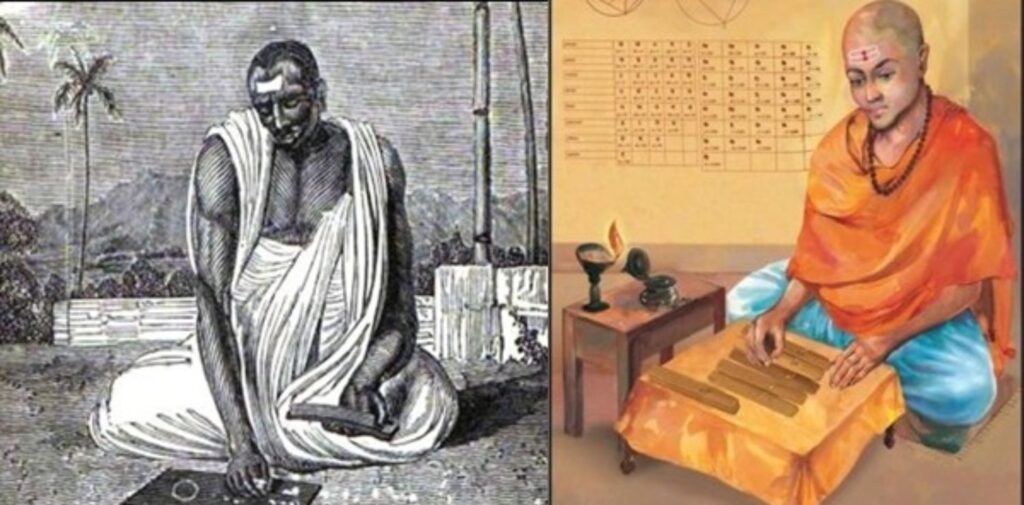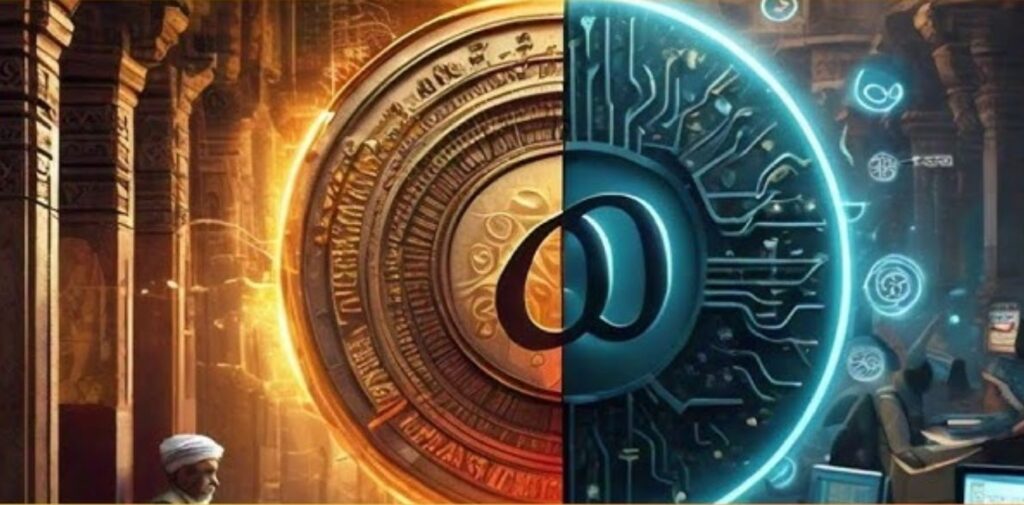India’s rich history in mathematics is often overlooked in many parts of the world, yet the contributions made by ancient Indian scholars are foundational to the development of modern mathematics. Among these, the works of Aryabhata and the development of the concept of zero stand out as crucial contributions that revolutionized the field. These contributions not only changed the course of mathematics but also had profound effects on science, astronomy, and even everyday life.
Aryabhata: A Mathematical Genius Ahead of His Time
Aryabhata, one of India’s most famous ancient mathematicians, was born in 476 CE in the region of present-day Bihar, India. His name is synonymous with some of the most advanced mathematical and astronomical concepts of the ancient world. Aryabhata was a brilliant mathematician and astronomer who made significant strides in the field of mathematics long before they were understood in the Western world.
One of Aryabhata’s most significant contributions to mathematics was his work on trigonometry. In his book Aryabhatiya, Aryabhata introduced a method of approximating sine values and was the first to describe the sine function in a mathematical form. He also provided the value of π (pi) as 3.1416, which was remarkably accurate for the time. Aryabhata’s work on approximation techniques was revolutionary, especially since Western mathematicians did not develop similar methods until many centuries later.
Aryabhata’s influence extended to astronomy as well. He accurately calculated the length of a year to be 365.35868 days, very close to the actual value of 365.2422 days. This was a critical advancement in understanding the Earth’s orbit and laid the foundation for more accurate time-keeping systems.

Aryabhata and the Concept of Zero
However, perhaps Aryabhata’s most lasting contribution to mathematics is linked to the development of the concept of zero. Zero is a symbol that represents the absence of a quantity or a placeholder in positional numeral systems. While the concept of zero was not fully developed during Aryabhata’s time, it is in his works that the idea of zero began to take shape.
The concept of zero has roots in ancient India, but it was Aryabhata who made significant strides in its mathematical application. In the Indian numeral system, zero became a crucial tool in performing calculations with large numbers, especially in astronomical observations, where precise measurements were necessary. It is widely believed that Aryabhata’s use of zero to represent the absence of a quantity was a precursor to the fully developed numeral system that we use today.
The Birth of the Modern Decimal System
The work of Aryabhata, along with other Indian mathematicians such as Brahmagupta and Bhaskara, played a critical role in the development of the decimal system. The decimal system, also known as the base-10 system, is the standard system used worldwide for counting and calculations. It relies heavily on the concept of place value, where the position of a digit determines its value (e.g., in the number 534, the digit 5 represents 500, the 3 represents 30, and the 4 represents 4).
In India, mathematicians developed this system using nine symbols (1 to 9) and a symbol for zero. This numeral system was far more efficient than the Roman numeral system used in Europe, which lacked a symbol for zero and place value. The decimal system was later transmitted to the Islamic world and then to Europe, where it replaced the Roman numeral system. The introduction of zero and the place value system completely transformed mathematical calculations and operations, allowing for more complex mathematical ideas and methods to be developed.

Brahmagupta and the Full Development of Zero
While Aryabhata made important contributions to the concept of zero, it was Brahmagupta, a later Indian mathematician who lived in the 7th century, who further developed the concept. Brahmagupta was the first to give a full definition of zero and its mathematical operations. In his work Brahmasphutasiddhanta, he described the use of zero in operations such as addition, subtraction, multiplication, and division.
Brahmagupta’s most famous contribution regarding zero was his rule for adding zero to a number. He stated that adding zero to any number does not change the value of that number. He also defined zero as a number that can be both the result of subtracting a number from itself, and the number that results from subtracting any number from zero.
Moreover, Brahmagupta recognized the concept of negative numbers and introduced rules for their use in arithmetic. His work laid the foundation for more complex algebraic operations that would later be developed in Europe.
The Spread of Zero to the West
The concept of zero and the decimal system traveled westward through the Islamic world, where scholars translated and expanded upon the works of Indian mathematicians. By the 10th century, mathematicians in the Islamic world were using zero and the decimal system to perform advanced calculations. The famous Persian mathematician al-Khwarizmi played a significant role in introducing these concepts to the Arab world.
It wasn’t until the 12th century that the idea of zero reached Europe. The Italian mathematician Fibonacci is often credited with popularizing the Hindu-Arabic numeral system in Europe through his book Liber Abaci (1202), which introduced the system to the Western world. Fibonacci’s book helped replace the cumbersome Roman numeral system, and over time, zero became an integral part of European mathematics.

The Importance of Zero in Modern Mathematics and Science
The concept of zero has had profound implications on the development of modern mathematics. It is the cornerstone of algebra, calculus, and computer science. Zero plays a central role in solving equations, particularly in algebraic expressions, and is indispensable in the calculation of derivatives and integrals in calculus. Without zero, many of the advanced mathematical theories that drive modern technology, from artificial intelligence to space exploration, would not be possible.
In computer science, zero is used as a fundamental building block of binary code, the language computers use to process information. The entire field of information technology relies heavily on binary digits (0s and 1s), making the concept of zero essential for the functioning of the digital world.
Conclusion
India’s contributions to mathematics, particularly the concept of zero, have left an indelible mark on the world. Aryabhata, along with other Indian mathematicians like Brahmagupta and Bhaskara, not only helped shape the mathematical methods used today but also laid the groundwork for scientific and technological advancements across centuries. Zero is one of the greatest inventions in human history, and India deserves recognition for its pivotal role in the development of this powerful concept. The legacy of Aryabhata and the Indian mathematicians who came after him continues to influence modern mathematics and science, showcasing the importance of India’s secret contribution to the world of numbers.




